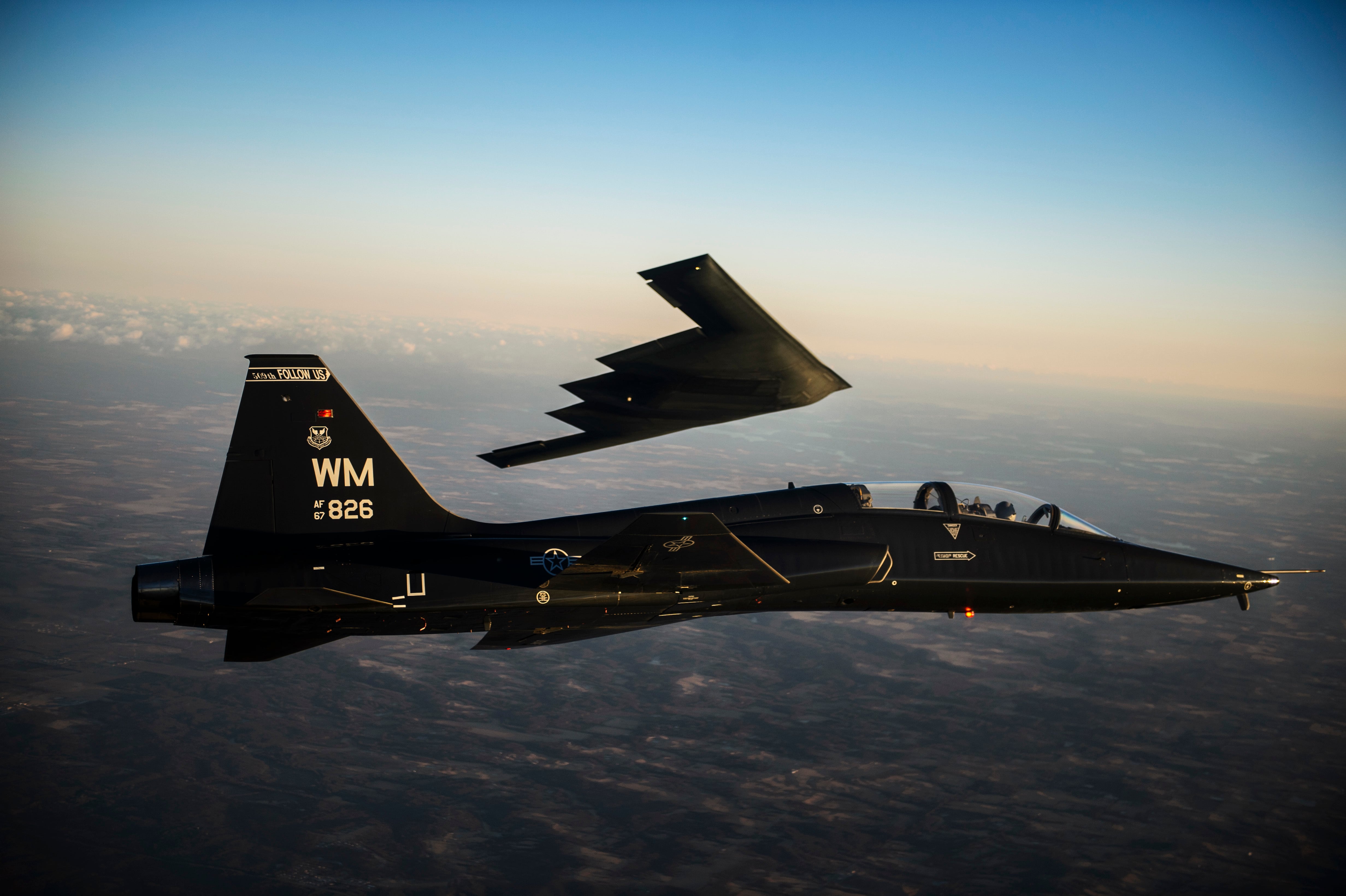WASHINGTON — The U.S. Air Force wants to lease advanced trainers as early as next summer while it waits for Boeing’s T-7 Red Hawk, creating an opportunity for the two training jets that lost out to the Red Hawk during the T-X competition.
The Air Force intends to open a competition for trainer jets that would help it test out a new training concept called “Rebuilding the Forge,” or “Reforge,” said Air Combat Command head Gen. Mike Holmes on June 22. The concept is meant to speed up the time it takes to produce an experienced pilot.
The service initially intended to lease T-50 jets — originally made by Korea Aerospace Industries — from Hillwood Aviation, according to a sources-sought solicitation released in January. But since then, other companies have expressed a desire to bid on the opportunity, called RFX, and Holmes confirmed that the Air Force plans to allow outside firms to propose alternative options.
RELATED

“In our initial market research, there was some thought that there might be only one airplane there was going to be bid against it. But as we did more market research, we found out that there were multiple people that wanted to bid, and they were going to bid with a couple of different airplanes at least,” Holmes told reporters during an event hosted by the Mitchell Institute for Aerospace Studies.
“Certainly competition is in our interest, so we want to have that competition to see who can come in and at an affordable cost. And frankly, our budgets are tight,” he added.
The goal of Reforge, Holmes said, is to produce experienced fighter pilots without having to put operators through the “basic course” currently required by any student who has never flown a fighter.
“We proposed to lease some airplanes while we’re waiting on the T-7 to arrive and do some experiments along with AETC [Air Education and Training Command] to try to figure out what’s the best use of this new T-7 that we’re going to buy,” Holmes said. “We think taking advantage of the capabilities of that new trainer along with the [virtual] training systems that AETC has previewed and premiered give us a great opportunity to meet the requirements of the [pilot] shortage that we have in the fastest, best way.”
Holmes added that if no single company comes in with an affordable proposal, the Air Force may back away from the leasing idea.
The service is still refining the specifics of its leasing strategy, but Holmes said the hope is to lease upward of 11 planes starting in the summer of 2021. The original solicitation stated that it could lease anywhere from four to eight trainers to provide approximately 4,500 flight hours annually for about five years.
Opening up RFX could make way for the third entrant in the T-X competition — Italian defense company Leonardo’s M346 Master — to butt heads against the T-50 once again. In March, Texas-based aviation company Mission Support Systems told Aviation Week that it hoped to propose a version of the M-346 that would, within a year, be integrated with a radar from Leonardo’s GRIFO radar series. However, Air Combat Command expressed a preference for the T-50, which already is equipped with a radar.
If the Reforge concept proves successful, the Air Force may find itself with a requirement in excess of the 351 jets that are planned to be procured in the T-7 Red Hawk program of record. Those T-7s may have different specifications than the Red Hawks used for undergraduate pilot training and could end up becoming a separate variant of the aircraft, Air Force Magazine reported.
Holmes said that while the T-7 is “a great airplane,” it’s possible for Boeing and its partner, Swedish defense firm Saab, to accelerate the program quickly enough to use the Red Hawk for the Reforge proof of concept.
“It’s several years away from us getting their hands on it,” he said. “Boeing and Saab are working through the shift from their prototypes to the operational airplane. They will tell you that they were pretty darn close in their prototypes to an operational airplane. … I agree, but it still takes some time to work through the issues and turn that into an operational platform.
Valerie Insinna is Defense News' air warfare reporter. She previously worked the Navy/congressional beats for Defense Daily, which followed almost three years as a staff writer for National Defense Magazine. Prior to that, she worked as an editorial assistant for the Tokyo Shimbun’s Washington bureau.








